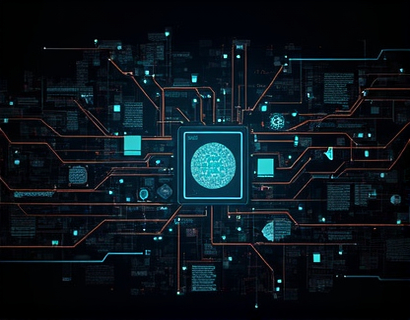Advanced Security Solutions for High-Net-Worth Clients in Crypto
In the realm of high-net-worth individuals, celebrities, sports stars, and cryptocurrency professionals, the stakes are higher than ever when it comes to cybersecurity. The increasing sophistication of cyber threats demands a proactive and tailored approach to security. This article delves into the essential advanced security solutions designed to protect the most valuable assets and personal information of these vulnerable yet affluent groups. Our focus is on providing expertly crafted digital defense and operational security services that ensure peace of mind in an ever-evolving digital landscape.
Understanding the Threat Landscape
The digital age has ushered in a new era of threats, particularly for those with significant assets or public visibility. High-net-worth individuals, celebrities, and sports stars are prime targets for cybercriminals due to their wealth and the value of their personal data. In the cryptocurrency sector, the anonymity and decentralization of transactions attract both legitimate investors and malicious actors. Understanding this threat landscape is crucial for developing effective security strategies.
Customized Security Protocols
One-size-fits-all security solutions are inadequate for the diverse needs of high-net-worth clients. Tailored security protocols are essential to address specific vulnerabilities and risks. For instance, a celebrity's security needs differ significantly from those of a cryptocurrency entrepreneur. Our approach involves a comprehensive risk assessment to identify unique threats and develop customized security measures.
Risk Assessment and Analysis
The first step in creating a robust security framework is a thorough risk assessment. This process involves evaluating potential vulnerabilities, assessing the likelihood and impact of various threats, and identifying critical assets that require protection. For high-net-worth individuals and cryptocurrency professionals, this may include analyzing online presence, digital footprints, and the security of cryptocurrency wallets and exchanges.
Advanced Digital Defense Strategies
Implementing advanced digital defense strategies is crucial for safeguarding against sophisticated cyber threats. These strategies encompass a range of technologies and practices designed to create multiple layers of security.
Endpoint Security
Endpoint security focuses on protecting devices such as computers, smartphones, and tablets from malware and other cyber threats. For high-net-worth clients, this includes deploying advanced endpoint protection solutions that offer real-time threat detection and response. These solutions can prevent malicious software from compromising devices and accessing sensitive information.
Network Security
Network security is fundamental in protecting the infrastructure that supports digital operations. This involves implementing firewalls, intrusion detection systems, and secure network architectures. For cryptocurrency professionals, securing the network that connects wallet servers and exchange platforms is paramount to prevent unauthorized access and data breaches.
Identity and Access Management
Robust identity and access management (IAM) systems ensure that only authorized personnel can access sensitive information and systems. Multi-factor authentication (MFA) and zero-trust security models are essential components. For high-net-worth individuals, IAM solutions can prevent unauthorized access to personal data and financial accounts.
Operational Security Measures
Operational security extends beyond digital defenses to include physical and procedural safeguards. These measures are designed to protect against a wide range of threats, from insider risks to physical breaches.
Physical Security
Physical security is often overlooked but is crucial for high-net-worth clients and those involved in the cryptocurrency space. Secure facilities, surveillance systems, and controlled access points help prevent unauthorized physical access to sensitive areas and assets. For cryptocurrency exchanges and wallet storage facilities, physical security measures can deter theft and sabotage.
Employee Training and Awareness
Human error remains one of the most significant security risks. Comprehensive training programs for employees and staff are essential to raise awareness about potential threats and best practices for maintaining security. This includes recognizing phishing attempts, safe handling of sensitive information, and adhering to security protocols.
Cryptocurrency-Specific Security Solutions
The unique nature of cryptocurrency transactions and storage requires specialized security solutions. These solutions address the specific vulnerabilities associated with digital currencies and blockchain technology.
Secure Wallet Management
Cryptocurrency wallets are a primary target for hackers. Using hardware wallets with strong encryption and secure backup mechanisms can significantly reduce the risk of wallet compromise. Regular updates and patches for wallet software are also crucial to address known vulnerabilities.
Transaction Monitoring
Continuous monitoring of cryptocurrency transactions can help detect and prevent fraudulent activities. Advanced monitoring tools can track unusual patterns and alert users to potential security breaches. For high-net-worth cryptocurrency investors, real-time monitoring is essential to respond quickly to any suspicious activity.
Cold Storage Solutions
Cold storage, or offline storage of cryptocurrencies, is one of the most secure methods for holding digital assets. Using secure cold storage devices and facilities can protect large amounts of cryptocurrency from online threats. For high-net-worth individuals, partnering with reputable cold storage providers is a viable option to ensure the safety of their assets.
Incident Response and Recovery
Despite the best security measures, incidents can still occur. Having a well-defined incident response plan is crucial for minimizing damage and restoring operations quickly. This plan should include steps for containment, eradication, recovery, and post-incident analysis.
Backup and Recovery
Regular backups of critical data and systems are essential for rapid recovery in the event of a security breach. Backups should be stored securely, both on-site and off-site, to ensure data integrity and availability. For cryptocurrency professionals, backing up wallet seeds and private keys is vital to prevent permanent loss of assets.
Post-Incident Analysis
After an incident, a thorough analysis helps identify the root cause and improve security measures. This involves reviewing logs, assessing the effectiveness of existing controls, and implementing new strategies to prevent future breaches. Learning from incidents is key to continuous improvement in cybersecurity.
Building a Security Culture
Security is not just about technology; it is also about people and processes. Fostering a security culture within organizations ensures that everyone is vigilant and proactive in maintaining security. This involves regular communication, ongoing training, and a commitment to security at all levels.
Leadership Commitment
Leadership plays a critical role in establishing a security culture. Executives and managers must demonstrate a commitment to security by allocating resources, setting clear policies, and leading by example. This top-down approach ensures that security is a priority across the organization.
Employee Engagement
Engaging employees in security efforts is essential. Encouraging a culture of reporting suspicious activities and providing incentives for proactive security behaviors can significantly enhance overall security. Regular security drills and simulations can also help reinforce best practices.
Conclusion
In the complex digital environment of today, high-net-worth individuals, celebrities, sports stars, and cryptocurrency professionals face unique and sophisticated security challenges. By implementing advanced digital defense and operational security measures, these individuals can protect their assets and personal information effectively. Tailored security solutions, combined with a strong security culture, are the keys to maintaining peace of mind in an increasingly threatening landscape.










































